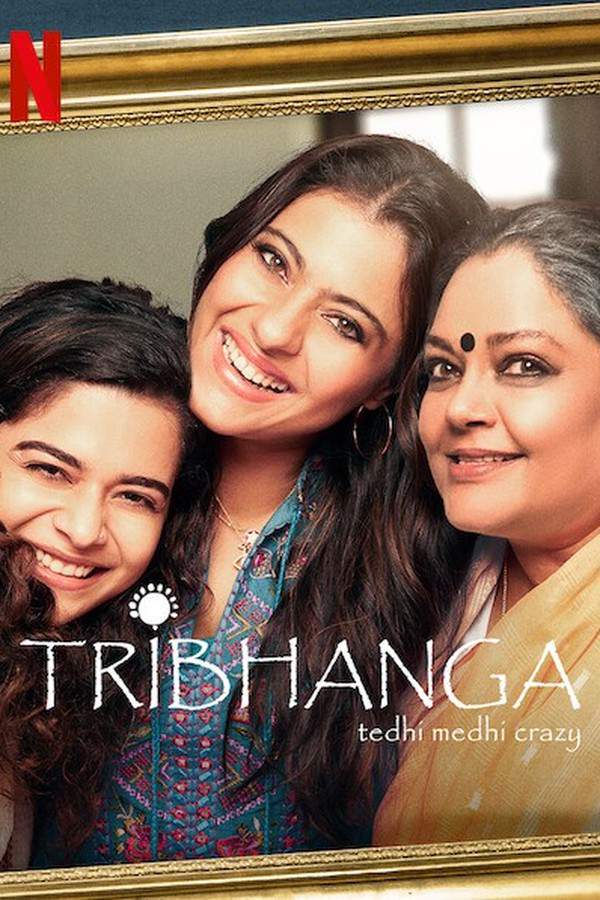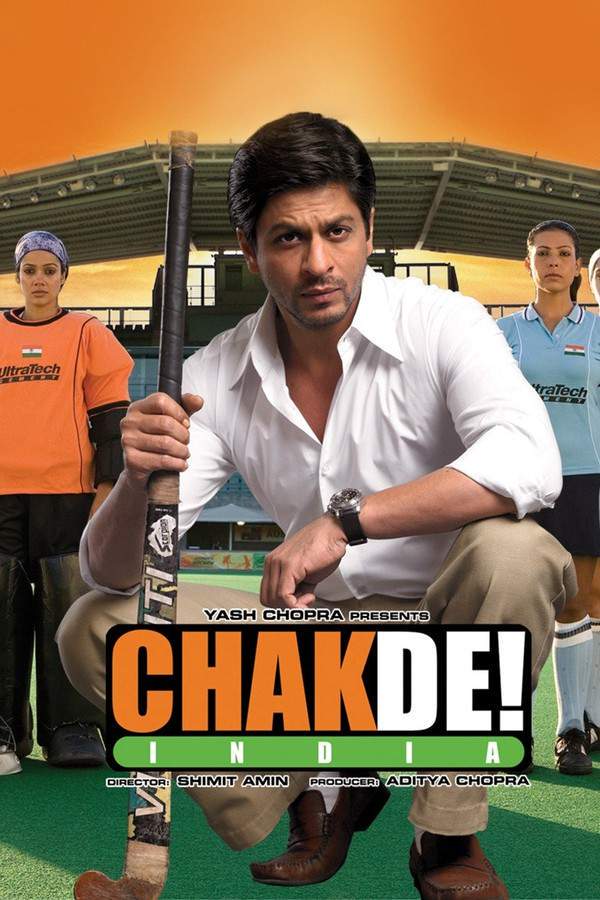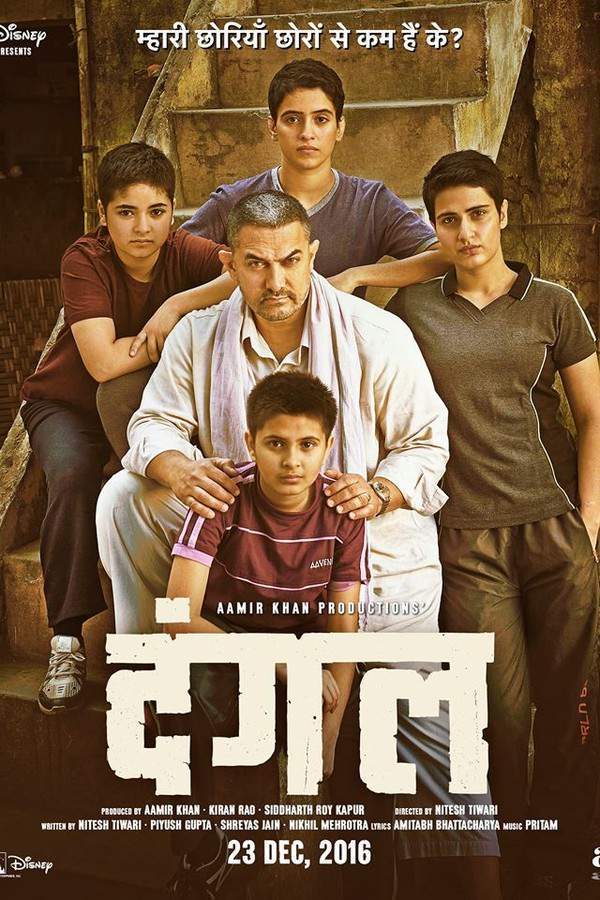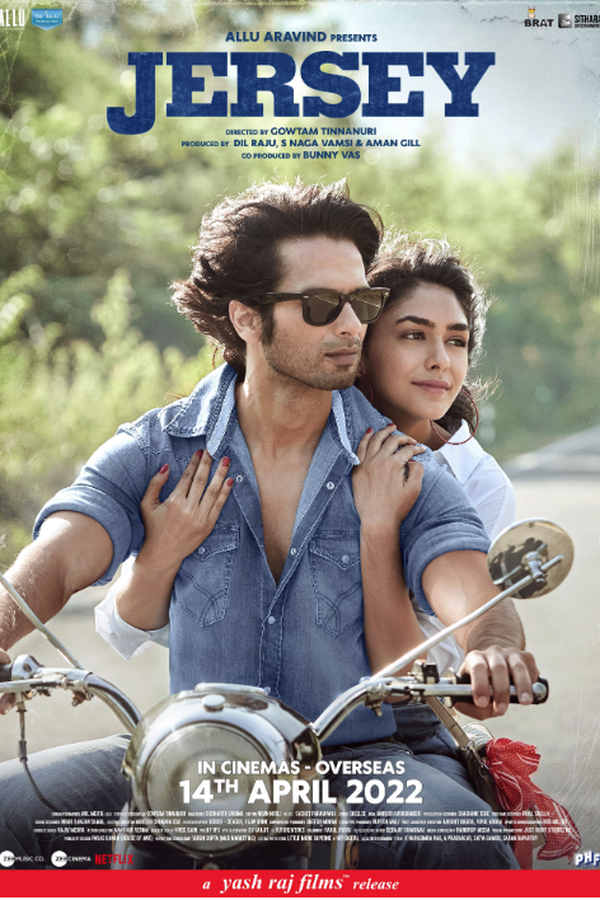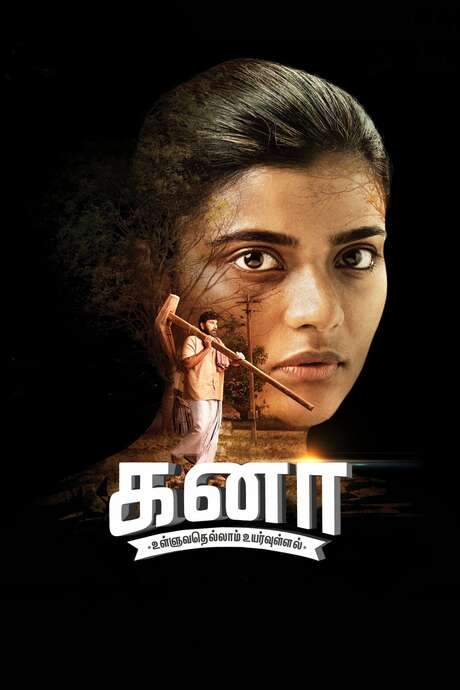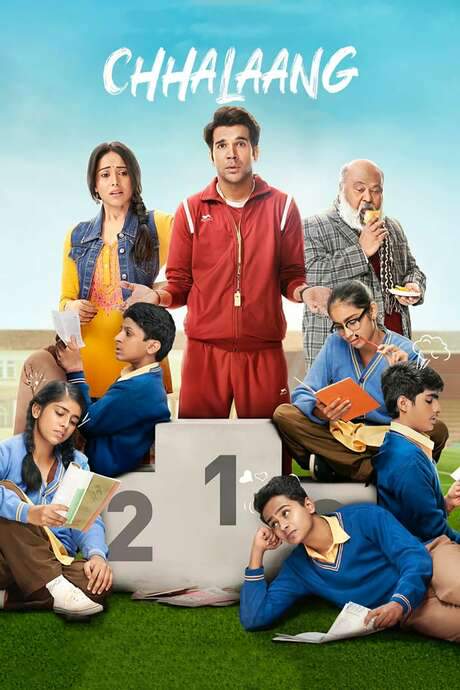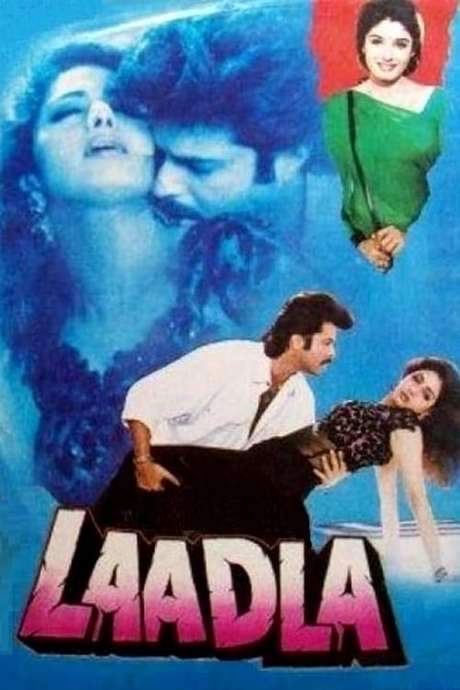Panga 2020
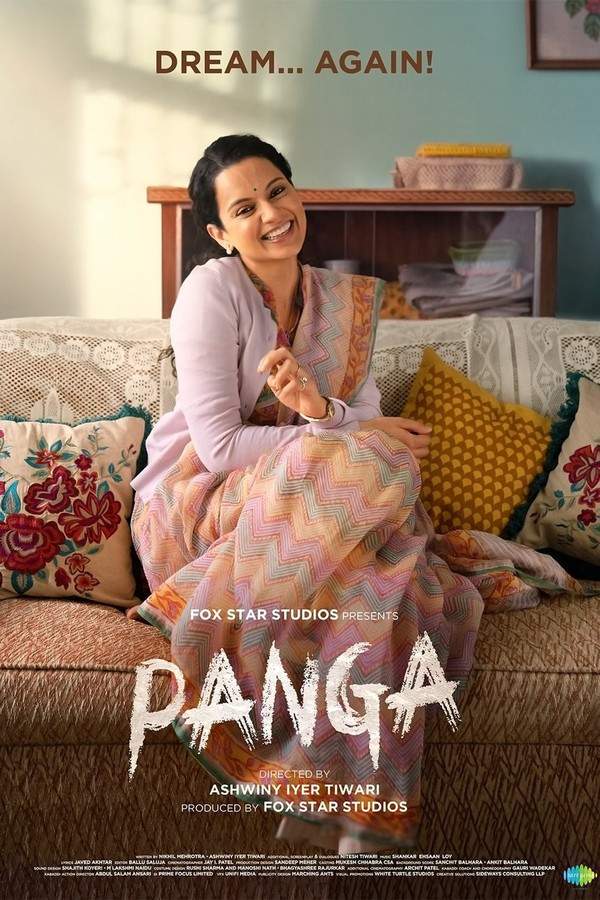
Balancing the demands of family life, a former kabaddi champion rediscovers her passion for the sport. Defying age and societal expectations, she embarks on a journey to reclaim her place on the national team. Along the way, she inspires those around her and rediscovers the power of love and perseverance in pursuing her dreams.
Does Panga have end credit scenes?
No!
Panga does not have end credit scenes. You can leave when the credits roll.
Meet the Full Cast and Actors of Panga
Explore the complete cast of Panga, including both lead and supporting actors. Learn who plays each character, discover their past roles and achievements, and find out what makes this ensemble cast stand out in the world of film and television.
External Links and Streaming Options
Discover where to watch Panga online, including streaming platforms, rental options, and official sources. Compare reviews, ratings, and in-depth movie information across sites like IMDb, TMDb, Rotten Tomatoes or Metacritic.
Ratings and Reviews for Panga
See how Panga is rated across major platforms like IMDb, Metacritic, and TMDb. Compare audience scores and critic reviews to understand where Panga stands among top-rated movies in its genre.

The Movie Echo Score
Panga delivers an earnest portrayal of personal ambition and maternal identity elevated by committed performances despite a somewhat predictable narrative framework. The film’s direction and pacing fluctuate, occasionally underscoring its emotional beats but lacking sustained tension. Character work and emotional resonance remain compelling, buoying the story’s heartfelt moments. Overall, Panga offers a warm, engaging experience tempered by narrative unevenness.
The Movie Echo Score Breakdown for Panga

Art & Craft
In terms of art and craft, Panga benefits from assured direction and competent technical work. The direction guides intimate scenes with clarity, and the editing maintains steady rhythms even when narrative beats slow. Production design and cinematography frame domestic spaces authentically but rarely innovate visually. Overall, the film’s craftsmanship supports its emotional core without drawing undue attention to itself.

Character & Emotion
When it comes to character and emotion, Panga excels with layered performances and genuine rapport among its cast. The lead delivers a nuanced portrayal of a mother-athlete balancing personal dreams and family expectations, fostering strong empathy. Supporting roles add credible depth, creating a sense of lived-in relationships and believable stakes. Altogether, the film’s emotional resonance is its most compelling asset.

Story & Flow
Regarding story and flow, Panga offers an inspirational narrative centered on familial bonds and personal reinvention, yet it often favors telling over showing. The screenplay introduces meaningful themes about motherhood and determination, though plot developments sometimes feel contrived. Pacing in the second half loosens dramatic tension, and an open-ended conclusion trades catharsis for possibility. In sum, the story is engaging but uneven.

Sensory Experience
In terms of sensory experience, Panga presents a cohesive audio-visual palette that underlines its intimate moments without extravagance. The soundtrack supports emotional peaks effectively, while ambient sound design grounds sports sequences in realism. Visual style remains straightforward, favoring naturalistic lighting and color. Although the film does not aim for stylistic boldness, its restrained aesthetic aligns with the story’s focus on personal struggle and triumph.

Rewatch Factor
With respect to rewatch factor, Panga’s heartfelt themes and strong central performance encourage repeat viewings for emotional warmth. Memorable character interactions and small, resonant moments reward subsequent engagement, even if certain narrative beats lose impact on return. While the film’s pacing variability may feel more apparent after multiple watches, its core portrayal of ambition and familial support sustains lasting appeal.


94%
TOMATOMETER

83%
User Score

6.8 /10
IMDb Rating

68
%
User Score

3.2
Take the Ultimate Panga Movie Quiz
Challenge your knowledge of Panga with this fun and interactive movie quiz. Test yourself on key plot points, iconic characters, hidden details, and memorable moments to see how well you really know the film.
Panga Movie Quiz: Test your knowledge about the inspiring journey of Jaya Nigam in Panga.
What sport did Jaya Nigam excel in before focusing on her family?
Cricket
Kabaddi
Football
Hockey
Show hint
Full Plot Summary and Ending Explained for Panga
Read the complete plot summary of Panga, including all major events, twists, and the full ending explained in detail. Explore key characters, themes, hidden meanings, and everything you need to understand the story from beginning to end.
Jaya Nigam, played by Kangana Ranaut, is a former Kabaddi world champion who currently works as an officer at the local railway station, manning ticket counters. She shares her life in Bhopal with her husband, Prashant Shrivastava, portrayed by Jassi Gill, a chief engineer at the railways, and their son, Aditya, affectionately known as Aadi, played by Yagya Bhasin. While Jaya finds solace in her family life post-Prashant’s transfer, a part of her deeply longs for her past days as a national-level athlete.
Life takes a turn when her son Aadi frequently falls ill, necessitating Jaya’s visits to the doctor, which result in her tardiness at work. Her manager at the station reminds her that as an ordinary railways employee, she must adhere to protocol and formally request time off. Reflecting on her glorious past, Jaya recalls that during her peak as a Kabaddi star, she could miss nearly 300 days of work without consequence, a stark contrast to her present routine.
The spark to reignite her passion for Kabaddi is re-ignited by the return of her former teammate, Richa Chadda, now the coach and talent scout for the Bhopal Kabaddi team. Meenu, as her teammate is called, hopes to see a player of Jaya’s caliber make a triumphant return to the national team. Aadi, feeling neglected because Jaya missed attending his race on Sports Day, urges her to revisit her past glories.
Jaya shares memories of her and Prashant’s love story, recounting how they met while she was training and how her career took a backseat when Aadi was born premature, requiring constant attention due to health issues. Eager to inspire her mother, Aadi researches famous comebacks, including that of Serena Williams, and suggests that Prashant could have helped more to support her career while taking care of Aadi.
With the encouragement of Aadi and the rekindled opportunity presented by Meenu, Jaya decides to make an ambitious return to the sport, notwithstanding the hurdles involving her fitness and adapting to younger, more skilled players. Prashant stands by her side, agreeing to support her training for a month to see if she can compete. Meenu’s advice leads Jaya to aim for joining a railways team, viewed as a swift pathway back to national selection.
After a rigorous training regimen and proving her mettle, Jaya secures a trial with the Eastern railways in Mumbai. However, a dilemma arises when the coach demands she relocate to Calcutta, a proposition she is reluctant to accept due to her commitment to Aadi. Rejecting the coach’s conditions, she opts instead to train in Bhopal, which leads to tensions escalating when Meenu chastises Jaya for not seizing the chance.
Ultimately, Jaya moves to Calcutta and realizes the necessity of additional coaching to refine her skills. Encouraged by her supportive roommate and teammate, Megha Burman, Jaya fine-tunes her techniques, embracing her strength over sheer speed. She successfully makes the national railway team, but the endeavor strains her familial relationships as Prashant grapples with managing Aadi alone.
The national coach, Rajesh Tailang, is in search of railway talent for the forthcoming Asian Kabaddi championship, where Jaya’s early performance raises doubts, yet her story resonates with the media, garnering interest and attention. As team dynamics become increasingly fraught, particularly with hostility from team captain Smita, Jaya finds herself sidelined during early matches.
With India advancing to the finals against Iran, Smita ultimately decides to trust Jaya’s experience. In a nail-biting match, Jaya steps up, making a crucial raid that captures the victory for India, reclaiming not just her place in the sport but also her identity as a remarkable athlete.
Uncover the Details: Timeline, Characters, Themes, and Beyond!

Coming soon on iOS and Android
The Plot Explained Mobile App
From blockbusters to hidden gems — dive into movie stories anytime, anywhere. Save your favorites, discover plots faster, and never miss a twist again.
Sign up to be the first to know when we launch. Your email stays private — always.
Discover Film Music Concerts Near You – Live Orchestras Performing Iconic Movie Soundtracks
Immerse yourself in the magic of cinema with live orchestral performances of your favorite film scores. From sweeping Hollywood blockbusters and animated classics to epic fantasy soundtracks, our curated listings connect you to upcoming film music events worldwide.
Explore concert film screenings paired with full orchestra concerts, read detailed event information, and secure your tickets for unforgettable evenings celebrating legendary composers like John Williams, Hans Zimmer, and more.


Panga Themes and Keywords
Discover the central themes, ideas, and keywords that define the movie’s story, tone, and message. Analyze the film’s deeper meanings, genre influences, and recurring concepts.
Panga Other Names and Titles
Explore the various alternative titles, translations, and other names used for Panga across different regions and languages. Understand how the film is marketed and recognized worldwide.
Similar Movies To Panga You Should Know About
Browse a curated list of movies similar in genre, tone, characters, or story structure. Discover new titles like the one you're watching, perfect for fans of related plots, vibes, or cinematic styles.
Quick Links: Summary, Cast, Ratings, More

What's After the Movie?
Not sure whether to stay after the credits? Find out!
Explore Our Movie Platform
New Movie Releases (2026)
Famous Movie Actors
Top Film Production Studios
Movie Plot Summaries & Endings
Major Movie Awards & Winners
Best Concert Films & Music Documentaries
Movie Collections and Curated Lists
© 2026 What's After the Movie. All rights reserved.












